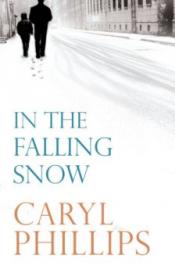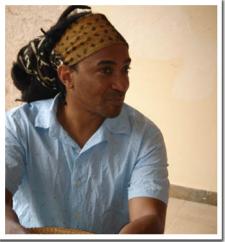The Initiative on Race, Gender and Globalization (IRGG) was established at the beginning of the academic year 2004-2005 with the support of the Office of the Provost. The primary goals of the IRGG are to internationalize the undergraduate and graduate curricula through scholarly spaces that foster intellectual exchange across geographic borders and political perspectives. Both in his speech “The Internationalization of the University” and in his Baccalaureate Address “Life on a Small Planet,” President Levin speaks about the global university and the importance of working across political and geographic boundaries in our contemporary world. He notes in his Baccalaureate Address that “this nation has suffered through much of its history from isolation and insularity.” To often,” he notes, “our leaders have been insufficiently mindful of how America is perceived throughout the world.” For the past 6 years the IRGG has committed itself to organizing and sponsoring colloquia, conferences, events, and speakers that not only address issues of national “isolation and insularity,” but also challenge the Yale University community to think transnationally and cross culturally about politics, the arts, economics, and history.
During the 2009-2010 Academic Year the IRGG continued to build on its cosmopolitan mission by bringing several scholars of national and international acclaim to the Yale University campus and by sponsoring public lectures and scholarly roundtables. Along with delivering public lectures for the Yale community, this year’s invited speakers participated in roundtable discussions on their scholarship in Professor Carby’s graduate seminars “Caribbean Diasporic Intellectuals” and “Transnational Imaginary.”
CARYL PHILIPS: IN THE FALLING SNOW

The IRGG began the academic year by co-sponsoring (with Labyrinth Books) In the Falling of Snow: An Evening with Caryl Phillips. This event was organized to celebrate and discuss with Professor Phillips the US publication of his novel In the Falling Snow. The event took place at Labyrinth Books on October 12, 2009, and Professor Hazel Carby served as interlocutor. Professor Phillips’ novel captures issues of diasporicity, class, and race in the late modern world through the story of both a man— Keith—at a turning point in his life and of a society moving from one notion of itself to another. Phillips notes on his website: “Keith— born in the 1960s to immigrant West Indian parents, raised primarily by his white stepmother —is in his forties, a social worker heading a Race Equality unit in London whose life has come undone: separated from his wife of twenty years (her family “let her go” for marrying a black man); kept at arm’s length by his seventeen-year-old son; estranged from his father; accused of harassment by a coworker. And beneath it all, a desperate feeling that his work and he himself are no longer relevant. Moving between past and present, the narrative uncovers the particulars of class, background, temperament, and desire that have brought Keith to this moment; and reveals how, often unwittingly, his wife, his son, and his father help him grasp the breadth of the changes that have occurred around him—and what those changes will require of him.”
Caryl Phillips is Professor of English at Yale University. He is the author of four books of nonfiction and seven novels. His most recent book, Dancing in the Dark, won the 2006 PEN/ Beyond Margins Award, and his previous novel, A Distant Shore, won the 2004 Commonwealth Prize. His other awards include the Martin Luther King Memorial Prize, a Guggenheim fellowship, and the James Tait Black Memorial Prize. He is a fellow of the Royal Society of Literature.
NEW DIRECTIONS IN CARIBBEAN STUDIES
Following our co-sponsored event for Professor Caryl Phillips, the IRGG co-sponsored (with the Center for Transnational Cultural Analysis, the Department of African American Studies, the Department of Anthropology, and the Dorothy Clarke Kemf Memorial Fund) a two-day symposium titled New Directions in Caribbean Studies. Working across heuristic platforms in the humanities and social sciences, the symposium aimed to come to grips with the relationship of Caribbean Studies to both modern and late modern social formations.
On November 5, 2009 Professor David Scott (Columbia University) delivered the keynote for the event. He is an internationally recognized scholar of Caribbean Studies. Since completing his last book Conscripts of Modernity he has oriented himself to the question of Third World sovereignty.
In his research, he queries: What are the new local and global conditions in which the problem of sovereignty arises in – and for – the Third World? Do we live, as is suggested in some quarters, in a post-sovereign world? Is the idea of an international system of political community in which the state occupies the supreme position of adjudication now eclipsed, obsolete? Does the concept of sovereignty no longer constitute a plausible or credible way of organizing our thinking about power in the contemporary Third World? Along with pursuing answers to these questions, Professor Scott also edits the academic journal Small Axe. On November 6, 2009 a selected group of scholars convened at Yale to examine the conception, disciplinarity, and political trajectory of Caribbean Studies.
BLONDE ROOTS: AN EVENING WITH BERNARDINE EVARISTO

Subsequent to the New Directions in Caribbean Studies Symposium, the IRGG co-sponsored (with Labyrinth Books) Blonde Roots: An Evening with Bernardine Evaristo. This event was meant to celebrate and to discuss with Ms. Bernardine Evaristo her latest novel Blonde Roots. The event took place at Labyrinth on November 16, 2009, and Professor Caryl Phillips served as moderator. Ms. Evaristo’s Blonde Roots explores social, ethical, and historical issues: the most controversial of all being the reversal of the transatlantic slave trade. The novel concerns itself with what it means for Africans to assume the role of mastery over Europeans.
Ms. Evaristo notes on her website: “Welcome to a world turned upside down. Welcome to the world of Doris. One minute she’s this cute little girl playing hide-and-seek with her sisters in the fields behind their cottage. The next, someone puts a bag over her head and she ends up in the stinking hold of a slave ship sailing to the New World. When she finally arrives on a strange, tropical island, she discovers she is a pig-ugly savage with a brain the size of a pea, whose only purpose in life is to please her mistress. Doris observes slavery from both sides. As an adult she becomes the personal assistant of her formidable master, Bwana, a.k.a. Chief Kaga Konata Katamba I. She also experiences the horrors of life in the sugarcane fields, where slaves are worked to death under the blazing sun. Doris dreams of escape, of finding those she has loved and lost, of returning home to her motherland: England.” Ms. Evaristo has published one prose novel, one novella, two novels-in-verse and one novel-with-verse. She is also a recipient of the Member of the British Empire award.
THOMAS GLAVE

Following our event for Ms. Evaristo, the IRGG co-sponsored (with Labyrinth Books) An Evening with Thomas Glave. This event was meant to recognize and to discuss with Professor Glave his literary contributions to questions concerning gender and queerness in the Caribbean. This event took place at Labyrinth Books on December 7, 2009, and Professor Hazel Carby moderated the discussion. Professor Glave is an award winning author and currently Professor of English at SUNY, Binghamton. He was the Martin Luther King, Jr. Visiting Professor at MIT in the 2008-2009 academic year. Glave is author of Whose Song? and Other Stories, nominated by the American Library Association for their “Best Gay/ Lesbian Book of the Year” award and by the Quality Paperback Book Club for their Violet Quill/Best New Gay/Lesbian Fiction Award. His essay collection Worlds to Our Now: Imagination and Dissent, nominated for a 2006 Publishing Triangle Gay Men’s Nonfiction Award, won a 2005 Lambda Literary Award. His edited anthology Our Caribbean: A Gathering of Lesbian and Gay Writing from the Antilles, was published in June 2008 and won a 2009 Lambda Award.
SUMANTH GOPINATH
After our event for Professor Glave, the IRGG sponsored a seminar visit and public lecture by Professor Sumanth Gopinath, Assistant Professor of Music Theory at the University of Minnesota. Professor Gopinath researches in the areas of art, popular music, cultural theory, and globalization. He is currently at work on two book projects: one book focuses on race and ethnicity in Steve Reich’s music; and the other book project examines the ringtone industry. On February 22, 2010, Professor Gopinath participated in a roundtable discussion in Professor Carby’s graduate seminar “Transnational Imaginary.”
On February 23, 2010, he delivered a public lecture titled “Trajectories of the Political Ringtone: Hugo Chavez and the Referendum of 2007.” Professor Gopinath’s lecture focused on the various ways that ringtones constitute a source for thinking and theorizing contemporary forms of political antagonism. In his lecture, Professor Gopinath noted that “the political ringtone, which in the form of national anthems and ethno-religious songs dates back to the earliest days of customizable ringtones, was profoundly transformed by the ringtone’s mutation into a sound file.
Recasting the cellular telephone as a portable music/sound playback and even recording device, the newest incarnation of the political ringtone has given rise to what might be understood as a global form: the political voice-remix ringtone. Originating in the Philippines in the summer of 2005 with the election scandal involving President Gloria Arroyo, in which the president’s voice was wiretapped while in conversation with an election official, successive attempts to utilize ringtones in this fashion began to appear in various parts of the world. One particularly important example was that of the “Por que no te callas?” phenomenon, whose source was the previous mentioned phrase (English: “Why don’t you shut up?”) uttered by King Juan Carlos I of Spain to Venezuelan President Hugo Chavez at the Ibero-American Summit in November 2007.
The incident immediately attracted widespread attention, both in the Spanish-language press and as a mass- cultural new-media phenomenon via YouTube and through ringtone remixes. Generating significant profits and amplifying fantasies of imperial nostalgia within Spain itself, the phrase and ringtone were quickly adopted by the white Creole elite youth in Venezuela, who constitute a core component of the Chavez administration’s opposition and played a significant role in the defeat of the proposed reforms in the December 2007 referendum.”

ROB NIXON: SLOW VIOLENCE, NEOLIBERALISM, AND THE ENVIRONMENTAL PICARESQUE
Following Professor Gopinath’s visit to Yale, the IRGG sponsored a seminar visit and public lecture by Professor Rob Nixon, Rachel Carson Professor of English at the University of Wisconsin, Madison. Professor Nixon researches in the areas of creative nonfiction; postcolonial literatures; world literature in English; environmentalism and literature; African and Caribbean literatures; contemporary British literature. On April 5, 2010, Professor Nixon participated in a roundtable discussion in Professor Carby’s graduate seminar “Transnational Imaginary,” and on April 6, 2010 he delivered a public lecture titled “Slow Violence, Neoliberalism and the Environmental Picaresque.” During his lecture Professor Nixon analyzed the intersection of fiction, violence, and environmentalism. His lecture engaged the “relative invisibility of slow violence, that is, calamities whose fatal repercussions are neither spectacular nor instantaneous, but dispersed across space and postponed across time.” In bringing together problems of ecology and human disposability by way of fiction, Professor Nixon’s lecture sought to investigate “the way writers have repurposed the figure of the picaro to breathe imaginative life into both the dynamics of slow violence and the environmentalism of the poor.”
SHAHRZAD MOJAB
After hosting Professor Robert Nixon, the IRGG sponsored a seminar visit and public lecture by Professor Shahrzad Mojab, Professor of Adult Education and Counseling, University of Toronto. Professor Mojab’s academic areas of expertise include educational policy studies; comparative and international adult education policy; adult education, globalization and learning; critical and feminist pedagogy. Her areas of research and teaching are: women, state, globalization and citizenship; women, war, militarization, violence and learning; and comparative analyses of lifelong learning theory and practice; and feminism, colonialism and imperialism. She has conducted extensive research on immigrant women’s access to employment and training in Canada and the impact of war and violence on women’s learning in the diaspora, in particular, on women political prisoners of the Middle East.
On April 20, 2010, Professor Mojab participated in a roundtable discussion in Professor Carby’s seminar “Transnational Imaginary”; and, on April 21, 2010, she delivered a public lecture titled “Tracing Dollars, Mapping Colonial Feminism: America Funds Women’s ‘Democracy’ Training in Iraq.”
Professor Mojab’s lecture discussed the intimate relationship between contemporary forms of imperialism and democratic projects. She noted: “Following the 2003 occupation of Iraq, the United States launched a comprehensive ‘democracy’ training program, targeting women in particular. This was part of the project of ‘regime change’ and the implanting of a pro- American polity and civil society. My research, along with the emerging literature on the practices of NGOs in ‘post-war reconstruction’, paints a complex picture of the relationship between imperialism, capitalism, colonialism and feminism. This paper will argue that the existing body of literature on women’s NGOs and education does not identify the encroachment of international organizations and state actors through various training activities as a manifestation of the convergence of imperialism and colonial feminism.
The empirical evidence for this paper is based on extensive fieldwork in the Kurdish region of Northern Iraq in 2005 as well as a survey of the existing critical feminist literature on women’s NGOs, war, militarization, ‘post-war’ reconstruction and women’s learning. In this paper, I will follow the ideology, policy, and practices of gender-based funding packages; a process that I have called ‘tracing dollars.’ My objective is to map out in detail the actual mechanisms through which ‘colonial feminist’ dependency is being created under the condition of imperialism and occupation. To achieve this, I will provide a detailed mapping of major US- based donors to women’s NGOs in the Kurdish region of Iraq.”